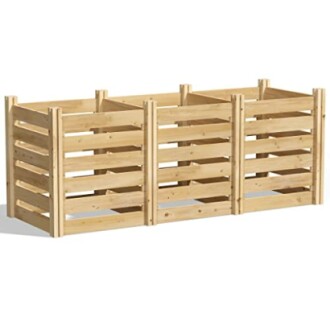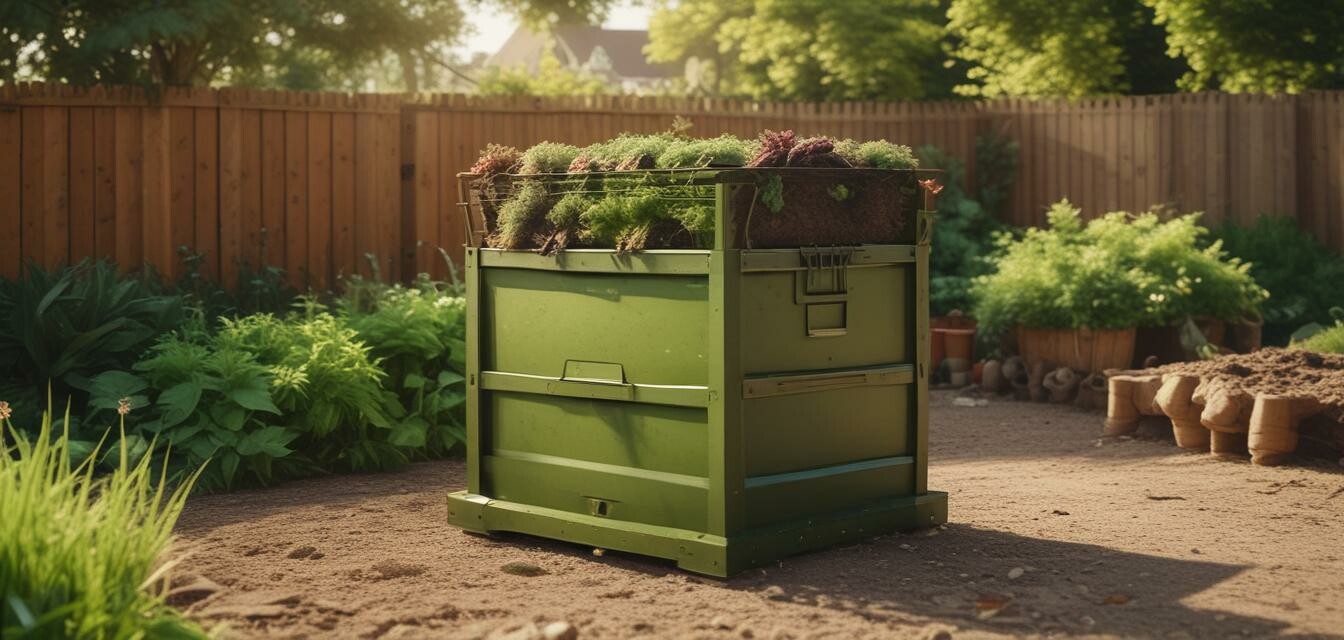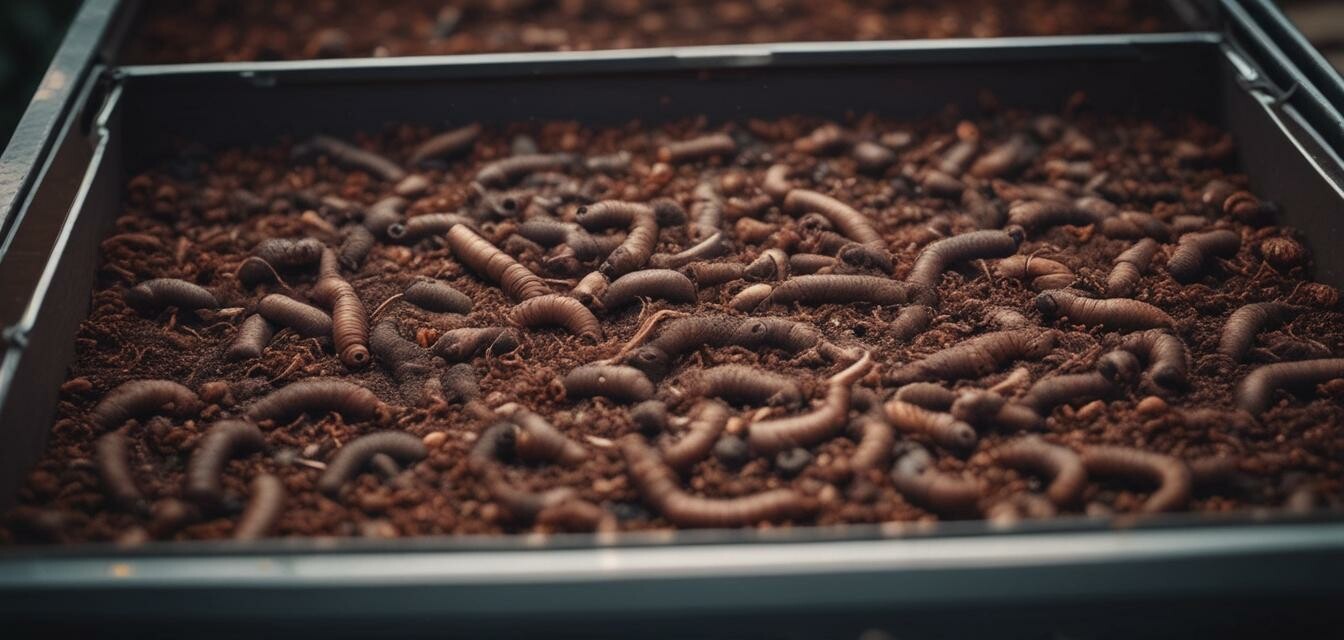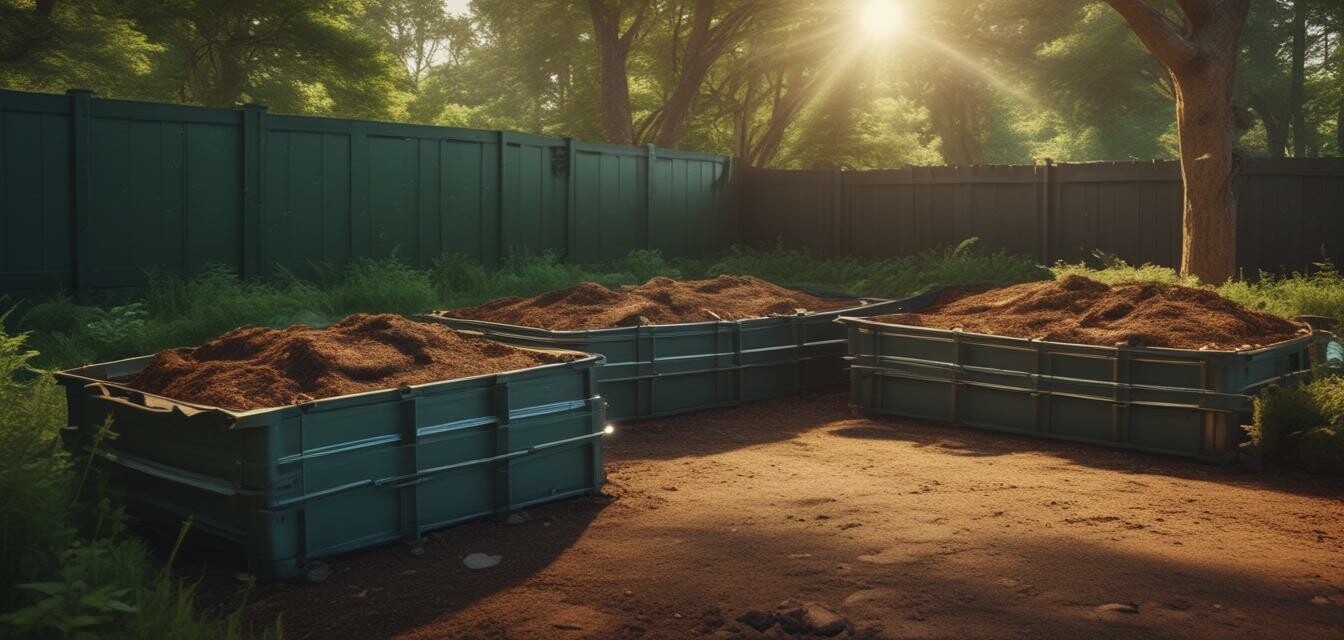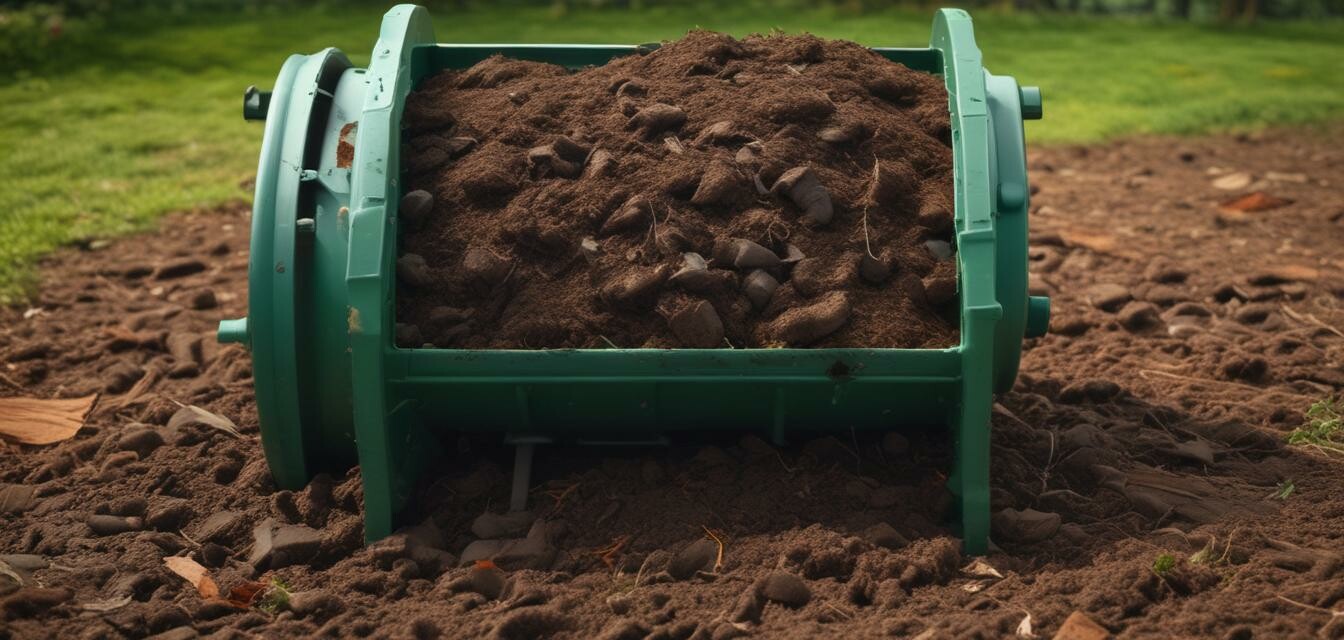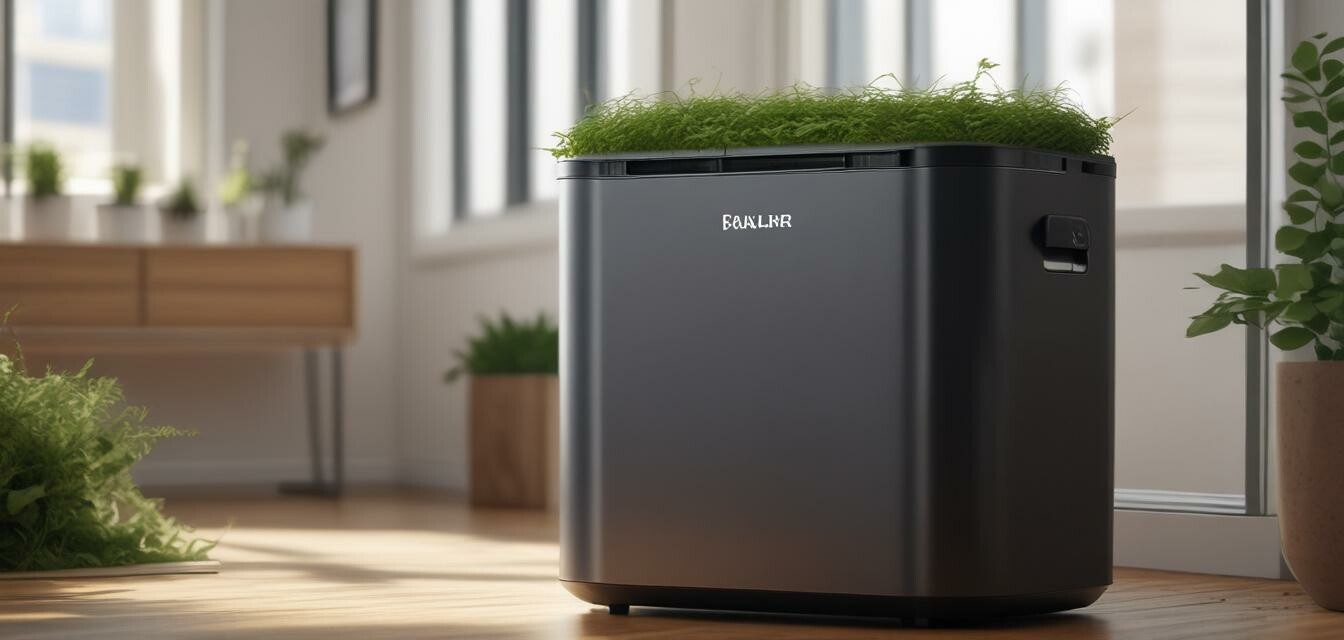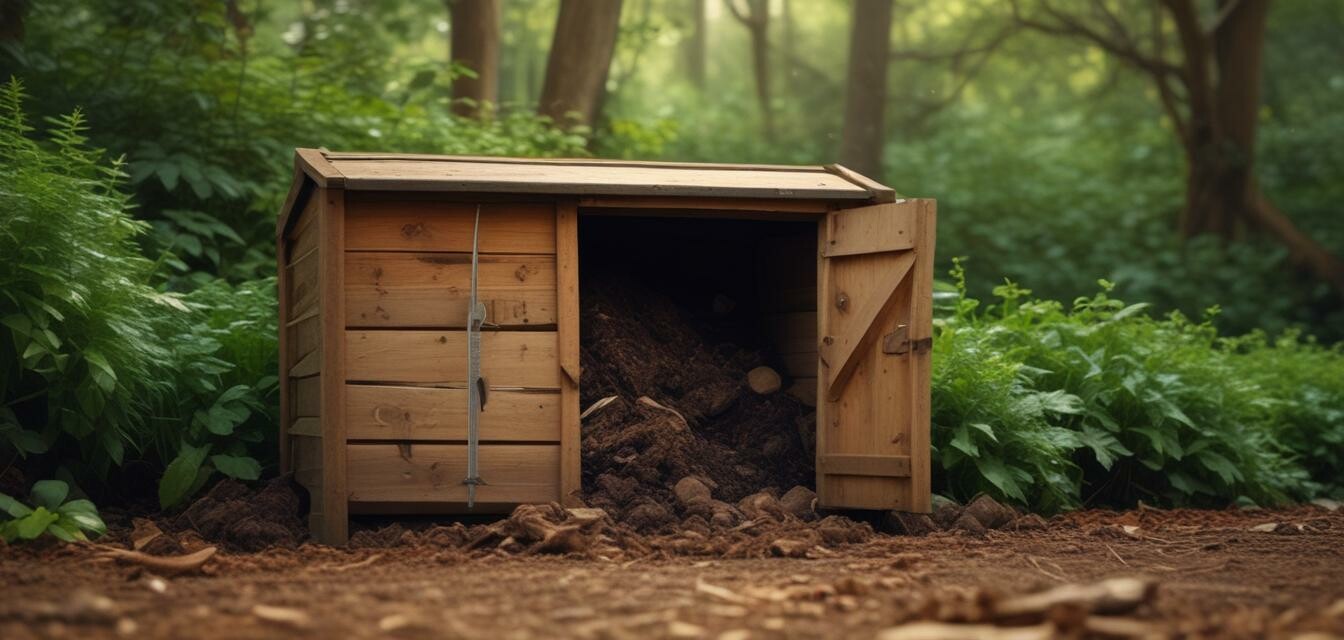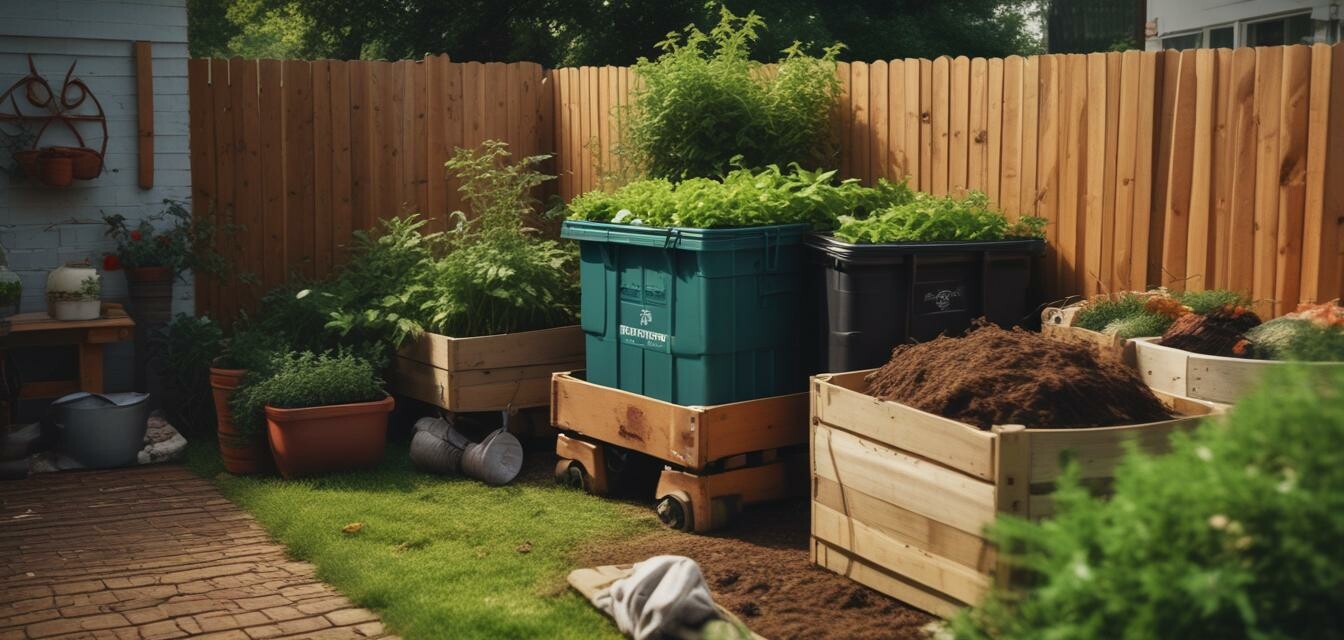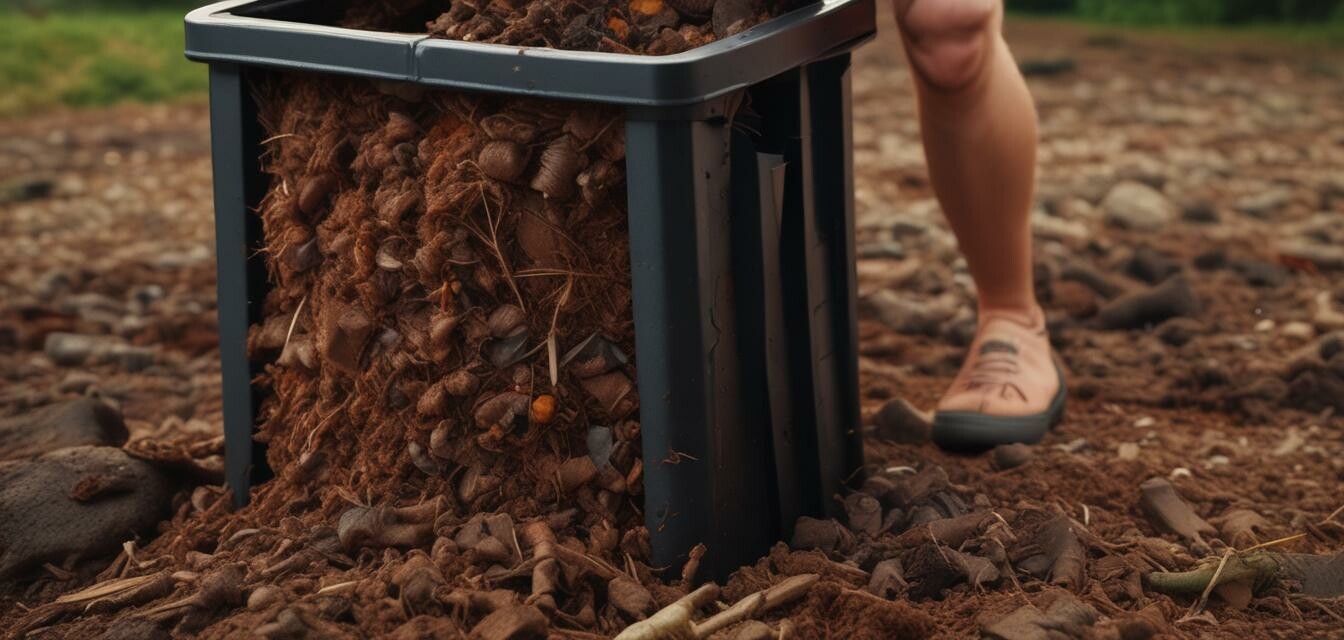Greenes Fence Cedar Wood Composter Review: Eco-Friendly Composting Solution
Key Takeaways
- Made from sustainably sourced North American cedar wood.
- Spacious capacity of 231.9 gallons for large composting needs.
- Open design promotes maximum airflow for efficient composting.
- Easy to assemble with no tools required.
- Includes a free gardening book by expert Mike McGrath.
If you're looking to embrace sustainable gardening practices, the Greenes Fence Cedar Wood Composter is a fantastic choice. This sturdy and spacious composter not only helps you reduce waste but also enriches your garden soil, promoting healthier plants. Made from high-quality cedar, this composter combines functionality with a rustic charm that enhances any backyard.
With its generous capacity and thoughtful design, the Greenes Fence Cedar Wood Composter is perfect for both novice and experienced gardeners alike. Explore more about composting and find other excellent options in our Open Air Composters category.
About Greenes Fence Cedar Wood Composter
The Greenes Fence Cedar Wood Composter is an excellent solution for gardeners looking to turn organic waste into nutrient-rich compost efficiently. Constructed from sustainably sourced North American cedar, this composter not only provides durability and strength but also adds a rustic aesthetic to your garden space. With dimensions of 72" L x 24" W x 31" H, it offers a spacious capacity of 231.9 gallons, making it suitable for both small and large garden projects.
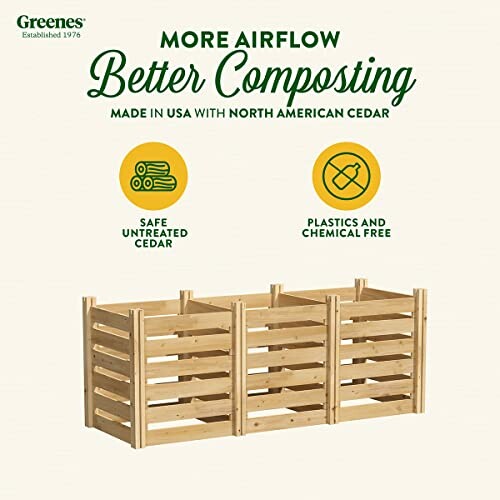
Quality Construction
This composter features rustic untreated 11/16"-thick cedar boards that lock into corner posts without the need for tools. This design not only enhances the sturdiness but also simplifies the assembly process, allowing you to set it up quickly and easily.
Key Features
- Max Airflow: The open design promotes maximum airflow, which is essential for efficient composting. This feature allows for effective waste rotation and decomposition.
- Sustainably Sourced: Made in the USA, this composter utilizes chemical-free cedar, ensuring it is safe for the environment and your garden.
- Included Free: With your purchase, you'll receive "Book of Garden Beds & Composting" by gardening expert Mike McGrath, providing you with valuable insights into successful composting practices.
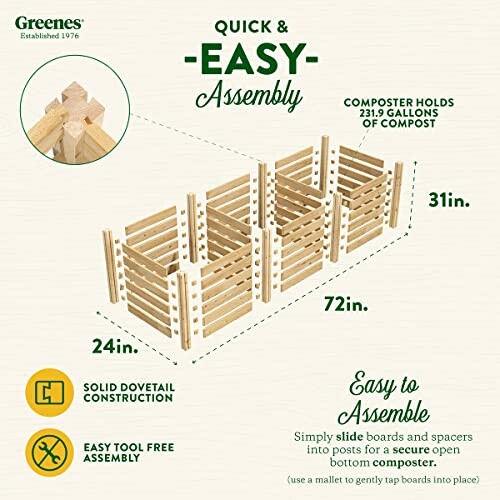
Ease of Use
The Greenes Fence Cedar Wood Composter is designed with user-friendliness in mind. Its straightforward assembly means that even beginners can set it up without hassle. The open-bottom structure eliminates the need for complicated installations, making composting accessible to everyone.
Ideal Use Cases
This composter is perfect for a variety of users, including:
- Beginners: Those new to composting will find the Greenes Fence Cedar Wood Composter easy to use and understand.
- Experienced Gardeners: Its large capacity is ideal for those who regularly generate organic waste.
- Eco-Conscious Individuals: Perfect for anyone looking to reduce waste and create a sustainable gardening practice.
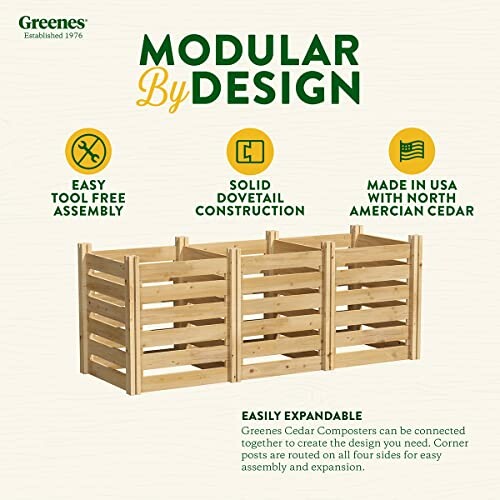 Check Current Price
Check Current Price
Why Choose the Greenes Fence Cedar Wood Composter?
Pros
- Constructed from durable, sustainably sourced North American cedar wood.
- Spacious capacity of 231.9 gallons, perfect for large composting needs.
- Easy to assemble without tools, making it accessible for beginners.
- Open design allows for maximum airflow, promoting efficient composting.
- Includes a free gardening book by expert Mike McGrath, enhancing your gardening knowledge.
Cons
- Some users found it to be slightly overpriced compared to alternatives.
- A few customers reported missing hardware items, although replacements were provided.
- Limited ability to reposition once assembled due to lack of screws.
Overall, the Greenes Fence Cedar Wood Composter offers a blend of quality, functionality, and aesthetics that makes it a great addition to any garden. While there are minor drawbacks, the numerous benefits far outweigh them, making this composter a worthy investment for sustainable gardening enthusiasts.
Final Thoughts on the Greenes Fence Cedar Wood Composter
When considering the Greenes Fence Cedar Wood Composter, there are several key factors to keep in mind to ensure you make an informed decision:
Tips for Buyers
- Look for a composter made from durable, weather-resistant materials, like cedar.
- Consider the size: Ensure it meets your composting needs based on your garden's size and the amount of organic waste you generate.
- Check for ease of assembly; tool-free setups can save you time and frustration.
- Review airflow features; designs that enhance airflow can improve composting efficiency.
- Avoid common mistakes, such as overloading your composter or failing to maintain a balanced mix of green and brown materials.
In summary, the Greenes Fence Cedar Wood Composter delivers a multitude of benefits, including its sustainable construction, ample capacity, and user-friendly design. While some may find it slightly pricey and may encounter minor assembly issues, the overall quality and efficiency of this composter make it a valuable addition to any garden.
For those looking to elevate their gardening experience and contribute to a more sustainable lifestyle, the Greenes Fence Cedar Wood Composter is highly recommended. Its quality craftsmanship and thoughtful features will undoubtedly enhance your composting journey.
Check Current PriceYour Composting Queries Answered
-
Q: Is the composter easy to assemble?
A: Yes, the composter features a design that allows for tool-free assembly, making it straightforward for anyone to set up.
-
Q: What is the material used for the composter?
A: It is made from sustainably sourced cedar wood, which is untreated and chemical-free, ensuring safety for the environment.
-
Q: How much compost can it hold?
A: The composter has a generous capacity of 231.9 gallons, making it suitable for both small and large gardening projects.
-
Q: Does it provide good airflow?
A: Yes, the open design of the composter promotes maximum airflow, essential for efficient waste decomposition.
-
Q: Are there any additional resources provided?
A: Yes, with your purchase, you will receive a free copy of Mike McGrath’s gardening book focused on beds and composting.
